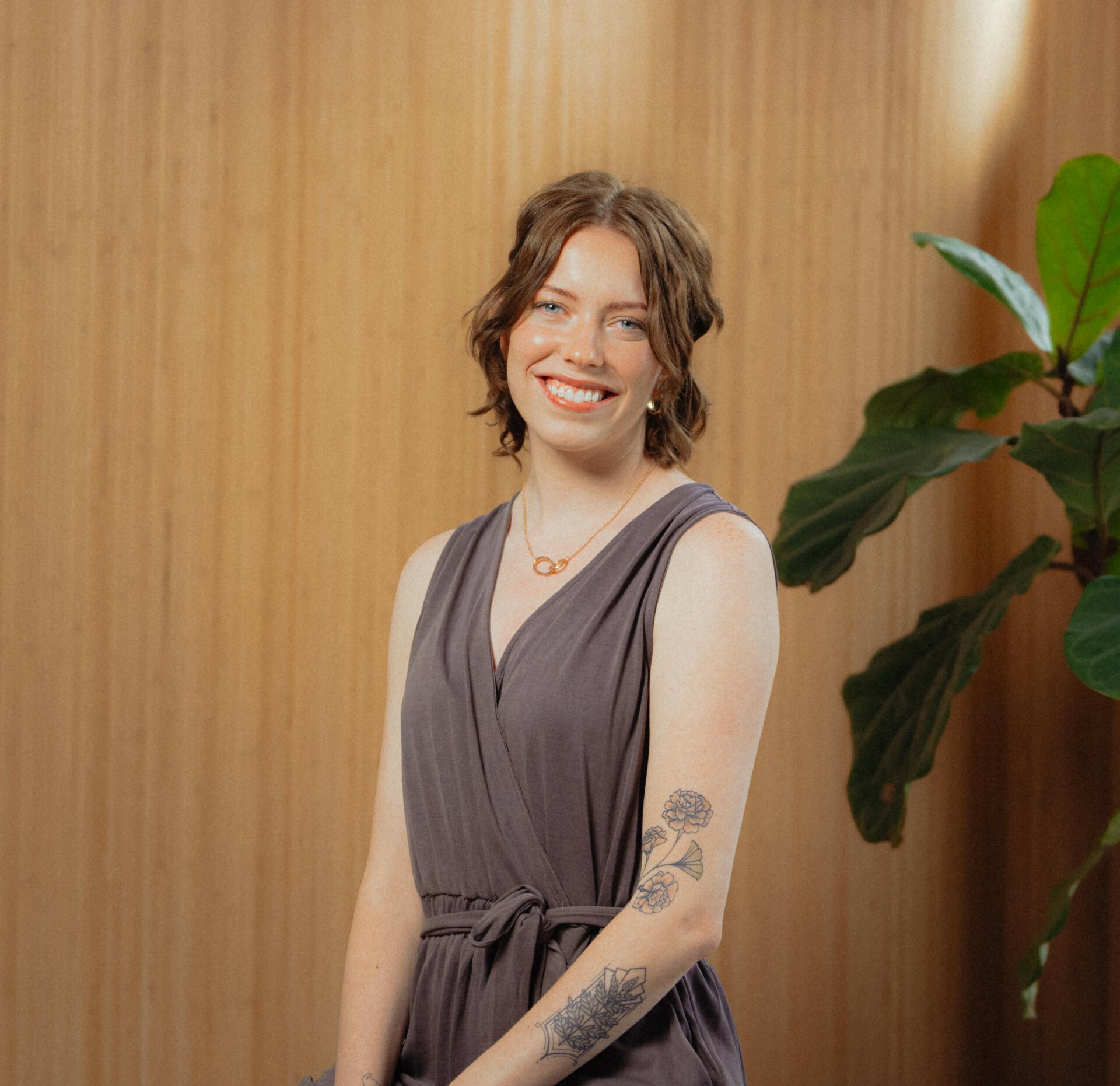We recently connected with Victoria Byler and have shared our conversation below.
Hi Victoria, really happy you were able to join us today and we’re looking forward to sharing your story and insights with our readers. Let’s start with the heart of it all – purpose. How did you find your purpose?
Finding my purpose wasn’t a single ‘aha’ moment, but rather a culmination of life experiences and self-reflection. Throughout my life, a common thread has emerged: a passion for helping others. Witnessing the impact positive change can have on someone’s life has always been incredibly fulfilling.
Early on in my career (or perhaps even before!), I discovered a love for learning. This curiosity, especially about human behavior and well-being, naturally led me to explore different psychology fields. As I delved deeper, I realized that many individuals in my target age range (30-45-year-olds) struggle with common challenges like anxiety, trauma, and low self-esteem. I knew I wanted to be part of their journey towards healing and empowerment.
Additionally, throughout my own personal growth journey, I’ve always valued authenticity, empathy, and creating lasting change. These values became core principles in the therapeutic approach I offer today. Focusing on EMDR, Expressive Arts, and Somatic techniques allows me to tailor therapy to each client’s needs and equip them with tools they can use beyond our sessions.
So, my purpose isn’t just about providing therapy, it’s about empowering individuals. It’s about helping them build their own ‘toolbox’ for managing challenges, cultivating self-esteem, and creating positive shifts in their lives. This alignment of my passion for helping others, my love for learning, and my core values – that’s what truly defines my purpose in this field.
Thanks, so before we move on maybe you can share a bit more about yourself?
I’d be thrilled to share my passion for helping people achieve lasting mental well-being! As a licensed therapist, I specialize in supporting individuals aged 30-45 who are struggling with anxiety, trauma, anger, and low self-esteem.
What truly excites me about my work is witnessing the profound transformation that therapy can create. I empower my clients by using a combination of EMDR, Expressive Arts, and Somatic therapy approaches. These techniques allow us to delve deeper than just talking, creating a more holistic and effective healing experience.
I believe the most special aspect of what I do is equipping individuals with the tools they need to manage challenges and build lasting change. It’s about empowering them to create a toolbox for their mental well-being, with strategies they can use long after our sessions end.
Here at Revive Counseling LLC, I prioritize a client-centered approach. We work collaboratively to develop a personalized treatment plan that addresses your specific needs and goals. Currently, I offer virtual sessions only, providing flexibility and convenience for busy schedules.
Looking ahead, I’m passionate about expanding my reach and impact. I’m actively exploring opportunities to speak at community events and raise awareness about mental health. Ultimately, my vision is to empower as many people as possible to live fulfilling and thriving lives.
Looking back, what do you think were the three qualities, skills, or areas of knowledge that were most impactful in your journey? What advice do you have for folks who are early in their journey in terms of how they can best develop or improve on these?
Looking back on my journey as a therapist, three key qualities and areas of knowledge stand out as having the most significant impact:
1. **Self-Awareness & Reflection:** My journey of self-discovery was crucial. By reflecting on life experiences and values, I was able to identify my passion for helping others and the specific approach I wanted to take as a therapist. This self-awareness allows me to connect with clients on a deeper level and tailor my approach to their unique needs.
**Advice for Early-Stage Professionals:** Embrace introspection! Take time to journal, meditate, or seek guidance from a therapist yourself. Explore your values, interests, and what truly motivates you. This self-knowledge will be your compass as you navigate your career path.
2. **Lifelong Learning:** The field of psychology is constantly evolving, and staying up-to-date on new research and therapeutic techniques is essential. This not only keeps my practice evidence-based but also allows me to offer the most effective methods to my clients.
**Advice for Early-Stage Professionals:** Cultivate a love for learning. Devour books, articles, and research papers related to your field. Consider attending workshops, and conferences, or pursuing continuing education courses. There’s always more to discover!
3. **Empathy & Communication:** Building trust and rapport with clients is paramount to successful therapy. This requires strong empathy, and the ability to truly understand and share the feelings of others. Plus, clear and compassionate communication is essential for creating a safe space for clients to explore their challenges and goals.
**Advice for Early-Stage Professionals:** Develop your active listening skills. Pay attention not just to what clients say but also to their nonverbal cues. Practice expressing empathy and validating their emotions. Honing your communication skills will allow you to build strong connections with anyone you meet.
By focusing on these areas – self-awareness, lifelong learning, and empathy & communication – early-stage professionals can set themselves on a path to success and fulfillment in their chosen field. Remember, the journey is just as important as the destination, so enjoy the process of learning and growing!
Tell us what your ideal client would be like?
My ideal client is someone between the ages of 30 and 45 who is looking to address challenges like anxiety, trauma, anger, or low self-esteem. These individuals are often at a pivotal point in their lives, seeking personal growth and a sense of empowerment. They might be navigating career transitions, relationship challenges, working towards being a better parent, or simply a desire to live a more fulfilling life.
Here are some specific characteristics that make a great fit for my practice:
Openness to new approaches: I utilize EMDR, Expressive Arts, and Somatic therapy, which can be quite different from traditional talk therapy. An ideal client is someone curious and willing to explore these innovative methods.
A commitment to self-improvement: Therapy requires effort and dedication. The ideal client is someone who is actively invested in their well-being and is ready to put in the work for positive change. They understand the importance of prioritizing their mental health and are looking for tools and strategies to manage challenges and build lasting resilience.
Contact Info:
- Website: https://revivecounselingllc.online
- Instagram: https://www.instagram.com/revivecounselingllc.online/
- Facebook: https://www.facebook.com/revive.counseling.llc.2023
- Linkedin: https://www.linkedin.com/in/victoria-byler-reviveonline/
- Youtube: http://www.youtube.com/@ReviveCounselingLLC.onli-ks8vy
- Other: https://www.psychologytoday.com/profile/732601

Image Credits
Amore Photography




